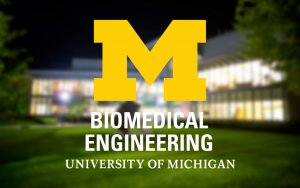Presented By: Biomedical Engineering
Towards Positive Synergy of Neuroscience and Artificial Intelligence
BME Seminar Series: Zhongming Liu, Purdue University

My lab uses neuroscience to drive artificial intelligence (AI) and in turn uses AI to study the human brain. We use models of computer vision to investigate biological vision. Some progress includes "encoding models" to predict brain responses to thousands of web images and "decoding models" to reconstruct and categorize natural videos from functional brain scans. We are now extending similar strategies to natural language processing and brain-inspired robotics. We also use neuroscience knowledge to advance computer vision. Recent progress includes the so-called predictive coding network, capable of running bottom-up and top-down computation similar to the bi-directional neural information processing in the brain. Unlike the state-of-the-art feedforward-only convolutional neural networks, the predictive coding network can unfold itself in time to generate an arbitrarily deep neural network, which learns faster and performs better despite its much shallower architecture and many fewer parameters. In this talk, I will share our recent work on combining neural imaging, recording, modeling, and machine learning, and discuss their potential applications for understanding mental functions and disorders.
Zhongming Liu, Ph.D., is an Assistant Professor of Biomedical Engineering and Electrical and Computer Engineering at Purdue University.
Zhongming Liu, Ph.D., is an Assistant Professor of Biomedical Engineering and Electrical and Computer Engineering at Purdue University.